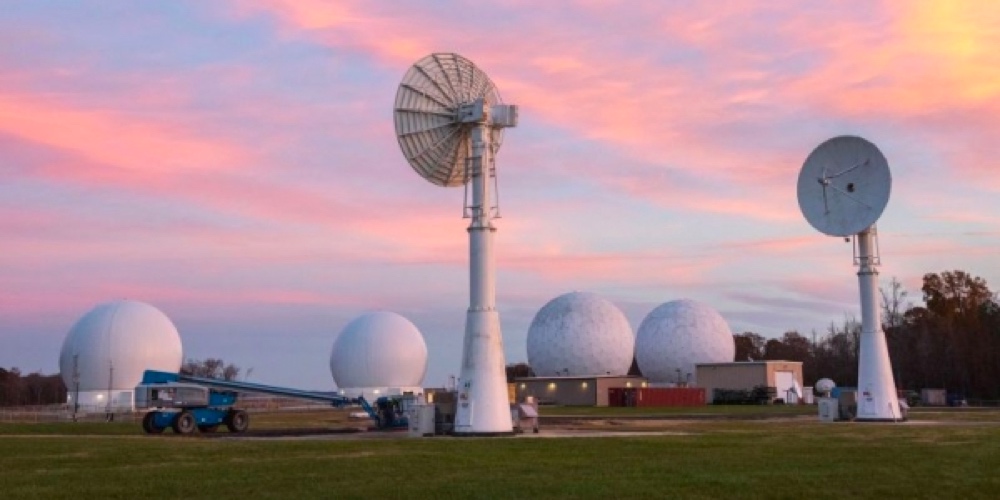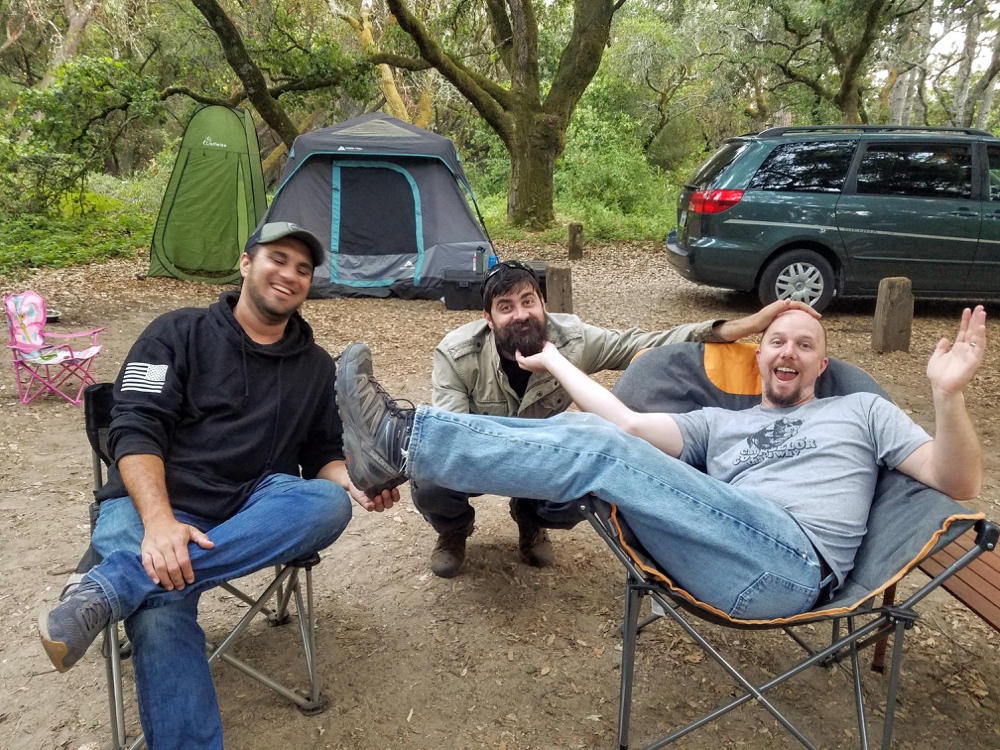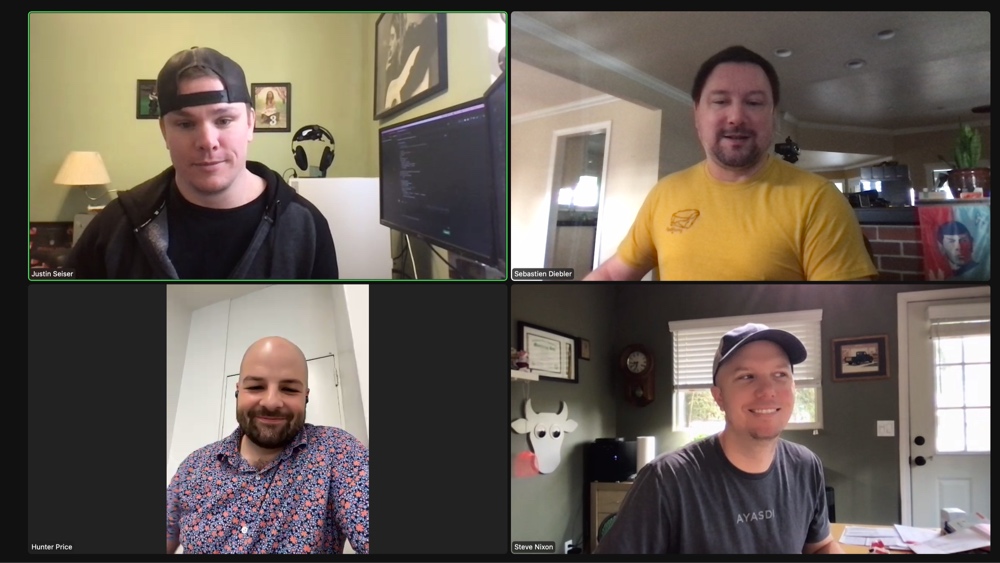-
Product-Driven
We’re completely transforming communications for satellites.
Before starting Sphinx, we were senior government employees at the Department of Defense, where we ran an in-house software consulting agency for the Air Force. We kept getting thrown massive tire fires within the space portfolio – think needing to fix GPS. Given that we all rely on GPS every second of every day, it’s pretty shocking that in reality, the infrastructure is so fragile. We founded Sphinx in order to solve a lot of the problems we encountered in government, and to bring those solutions to the commercial market.
That status quo of satellite operations is slow, manual, and expensive. This was fine when there were only hundreds of satellites in space, all with limited capabilities and operated by governments and very large corporations. But in 2022, the landscape has drastically changed. The number of satellites in space is increasing by an order of magnitude every year, and newer satellites are increasingly capable of, and sometimes require, rapid and frequent maneuvering. This new reality in space requires a new reality on the ground. Satellite operators need to be able to move vehicles quickly, in real-time – whether it’s to avoid the increasing amount of traffic in space, link up with a refueling station, or maneuver defensively against space debris.
At Sphinx, we’re solving this problem by building a vehicle-agnostic communications infrastructure to allow satellite operators to utilize diverse antenna networks. In both commercial and government use cases, we're creating a modern set of APIs that allow satellite operators to connect to Sphinx. We'll then facilitate all the connections to disparate antennas/antenna networks, and maintain them. Ultimately, our modern technology will help positively shift the paradigm of national security and enable satellite start-ups to more quickly and cheaply command and control their vehicles.

-
Impressive Team Members
Sphinx was founded by engineers and technologists with deep experience across commercial and defense technology.
Our founders and early team members bring a vast amount of industry experience. Co-founders Hunter (CEO) and Sebastien (VP of Eng) were early members of the US Digital Service and senior employees of the Department of Defense (DoD) working to modernize DoD Technology programs, like GPS. As a team, we’d like to think that we’re the best at what we do, but we’re also humble and eager to share our knowledge. This means that having previous experience in the space is not a prerequisite! In fact, we’re actively looking for talented individuals with different backgrounds and viewpoints regardless of what stage in their career they’re at. We don’t care about your pedigree and aren’t looking for a certain company name or university on your resume. Instead, we want folks who are motivated to make themselves better. If you’re the type of person who loves teaching yourself new things, you’ll fit in well here.

-
Flexible Work Arrangements
You’ll have the autonomy and freedom you need to be the most productive.
We’re a fully distributed team that truly spans the entire country. We have people in DC, Ohio, Colorado, California, and Wyoming to name a few places. Outside of our two standing weekly meetings (which happen in the middle of the day EST), we trust you to manage your schedule and work in a way that suits you best. A lot of communication is asynchronous, either via Slack or code comments. We’ll hop on 1:1 Zoom meetings as needed, but that’s always up to you and your team to decide when and how often. Ultimately, we believe in giving people the responsibility and freedom to move projects forward.

-
Engineering-Driven
We place a large amount of trust in our engineers.
As an early hire on our Space Communications team, you’ll have a large impact in determining what we build and how we work. Our leadership team does a great job at communicating our vision, but since we’re building an entirely new platform, there’s no rulebook or ‘one right way’ to execute. To that end, we place a large emphasis on hiring smart, motivated people, and trusting them to get the job done. You’ll have the autonomy to hit the ground running and the tools needed to confidently and easily test and release code multiple times a day.
As we grow, engineers will be responsible for mentoring more junior talent and continue to have a large say on our roadmap. It’s an exciting time to join the team, as we’re looking to triple in size by the end of the year!
-
Customer Comes First
While our product has important commercial relevance, Sphinx was founded to deliver a solution first and foremost for the U.S. government.
As part of that, we inherently need to build around the realities of where the U.S. government’s infrastructure is taking GPS, for example. That means we’re putting things in our product to account for some of the software that major defense contractors delivered decades ago. In other words, we sometimes choose technologies that are harder to work with, and wouldn’t be our first choice, because it’s what our customer requires. While this means that sometimes we don’t get to build exactly how we’d like to, working with the government allows us quick access to real world satellites and antennas that don’t exist in the commercial sector. Sphinx engineers get to see the real world impact of their work quickly.

-
Creative + Innovative
Unlike legacy incumbents, what we’re building is truly cutting-edge.
We’re transforming the future of satellite vehicle communications, working to replace manual or email-driven systems in order to maneuver satellites in real-time. In turn, we’re decreasing the costs of operating satellites by orders of magnitude. In some cases, we’re even replacing a piece of software that was built on DOS 3.1, which was out of date a quarter century ago. Currently, if you want to fly a satellite, you need to spend a few billion dollars building your own comms infrastructure, or you have to go to a legacy antenna network provider, which also presents its own challenges since their technology is old and hard to work with. We’re pioneering the communication infrastructure for U.S. government satellites by leveraging modern technologies that provide a more secure, automated, and user-centric experience.
The amount of activity in space has exploded in recent years, and the ground support infrastructure has struggled to keep up. Sphinx is capitalizing on this market growth by modernizing space to ground communications, both driving down the costs of operating satellites and unlocking new capabilities. Our customers include the U.S. Space Force and the U.S. Navy, who are helping us develop our platform. As the commercial market continues to grow and mature, our space communications platform will have important commercial applications.
-
Work/Life Balance
There’s no one-size fits all work schedule.
Engineers are given reasonable chunks of work that we expect you should be able to finish in a week or two weeks – then we leave you alone to figure out how best to do that. There’s no expectation to work weekends and we’re mindful about keeping the pace sustainable. While there are of course dependencies on other people, collaboration between team members is frequent but generally ad hoc (see Flexible Work Arrangements above). This way, you’re able to set your own work schedule and make sure you have time to enjoy your passions outside of the proverbial office, too. For instance, our CEO Hunter is an avid traveler, several team members have cars in various states of disassembly, and Justin, our lead DevOps engineer, is a pro-amateur Frisbee Golfer.

-
Ideal for Parents
Two thirds of our team are parents.
While many early-stage startups aren’t known for being ideal for parents, we’re an exception. Sphinx is a great place for anyone who needs to work asynchronous or non-contiguous hours. Most of our team members have kids and our flexible work arrangements make it much easier to balance work and family responsibilities. If you need to pick up your kids from school or want to take an afternoon off to attend an away game, we won’t ask questions. If your kid is home sick, we totally understand (and have been there before…). In fact, we fully cover medical, dental, and vision benefits for both employees and their dependents.
At the end of the day, we pride ourselves on balancing freedom and independence with collaboration and responsibility. If this resonates with you and you’re excited about building a cutting-edge communications platform for U.S. government satellites, we encourage you to reach out.
